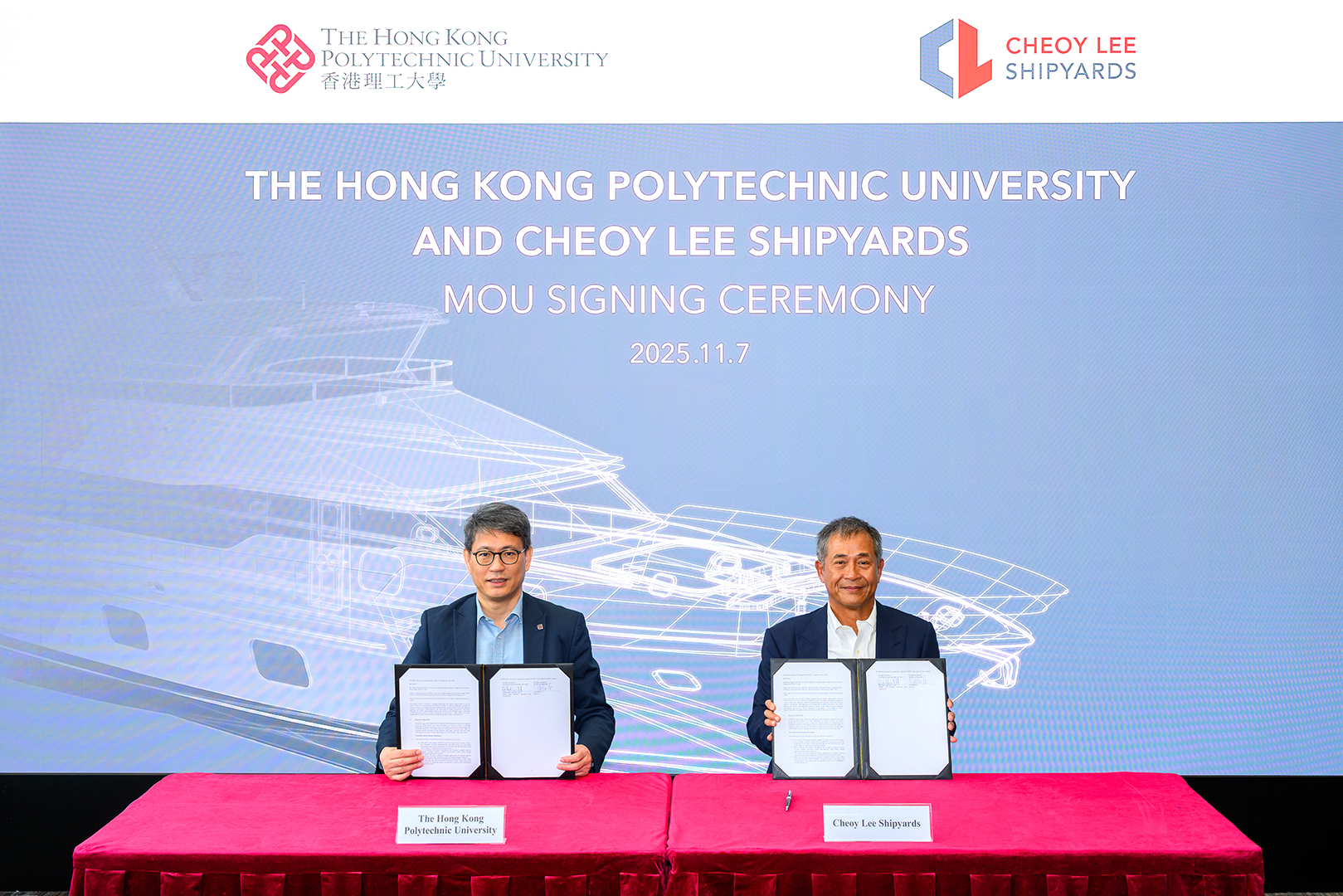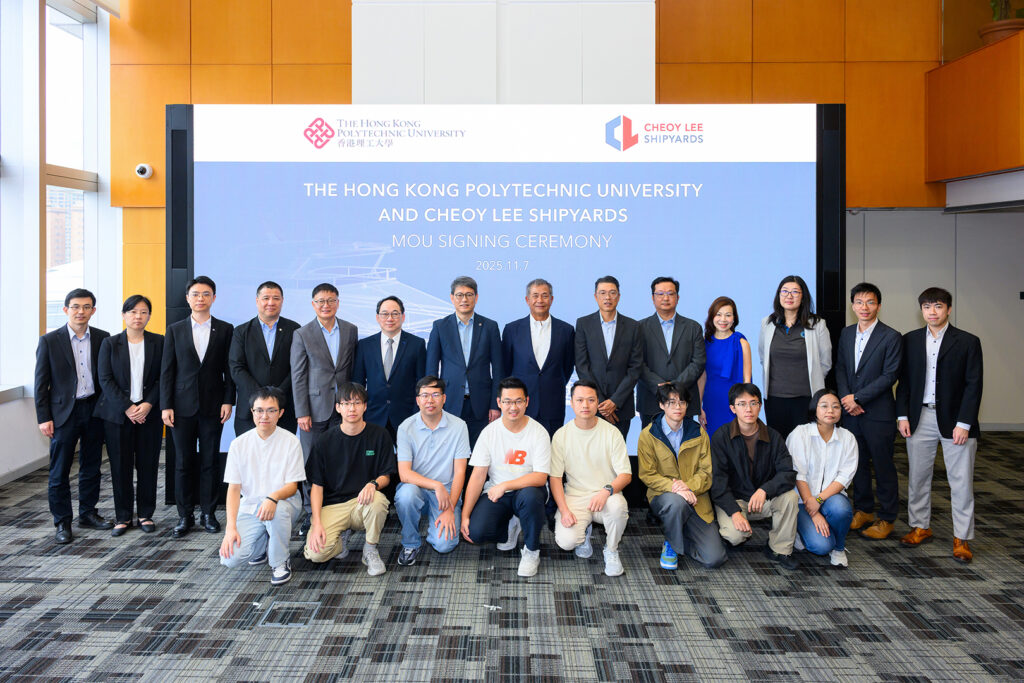
The Hong Kong Polytechnic University (PolyU) and Cheoy Lee Shipyards have entered a strategic partnership to drive innovation in electric vessel technology, artificial intelligence robotics and sustainable ship manufacturing. The collaboration strengthens Hong Kong’s position as a centre for green maritime research and intelligent vessel design.
The Hong Kong Polytechnic University (PolyU) and Cheoy Lee Shipyards have signed a Memorandum of Understanding (MoU) to advance research in alternative-powered vessels, artificial intelligence robotics and green materials. The agreement aims to push forward the development of intelligent and sustainable shipbuilding technologies that can contribute to a cleaner, more efficient maritime industry.
The MoU was signed on the PolyU campus by Professor Christopher Chao, Senior Vice President (Research and Innovation) of PolyU, and Mr Martin Lo, Director of Cheoy Lee Shipyards. The partnership will focus on areas such as electric propulsion systems, renewable energy integration and smart manufacturing technologies.
Prof. Chao said, “PolyU is committed to advancing cutting-edge research and promoting academic-industry collaboration. This partnership with Cheoy Lee Shipyards exemplifies the synergistic advantages of academia and industry collaboration, paving the way for a new era of intelligent and sustainable vessels and reinforcing Hong Kong’s leadership in green shipping.”
–

–
According to Mr. Lo, “This collaboration marks a new milestone in the long-term partnership between PolyU and Cheoy Lee Shipyards. Our shared vision is to combine the University’s research excellence with the Shipyard’s industry expertise to drive the future of shipbuilding and sustainable maritime development, moving towards smarter, greener and more sustainable growth.”
The research will explore next-generation electric vessels designed to reduce carbon emissions and dependence on fossil fuels. Scientists and engineers will study energy storage systems, lightweight materials and advanced propulsion technologies to improve energy efficiency and endurance. Work will also be carried out on AI-driven robotics to enhance automation in vessel design, assembly and maintenance, reducing operational risks and improving safety.
The collaboration will create testing environments to evaluate the real-world performance of new technologies. These experimental platforms will support prototype development and ensure compliance with international safety and environmental standards.
Beyond technology, the initiative aims to strengthen knowledge exchange between academia and industry through joint research and talent training. By integrating artificial intelligence with green energy and digital manufacturing, the partnership will contribute to Hong Kong’s broader goals of becoming a global innovation hub and advancing the transition toward sustainable maritime transport.












